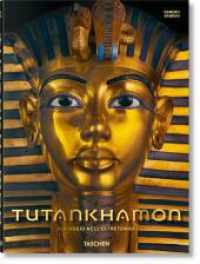- ホーム
- > 洋書
- > 英文書
- > Psychology
Full Description
The technological revolution in the social sciences made available a set of research tools and data manipulation techniques that permit the study of complex social processes previously inaccessible or not amenable to our observational powers. One important set of tools took the generic title "experimental games," which were characterized by the interactive protagonists' pursuit of relatively well-defined goals whose achievement is dependent on the behavior of others. James T. Tedeschi, Barry R. Schlenker, and Thomas V. Bonoma, in this work, explicate these highly structured interactions.
The grand strategy of scientific inquiry is the development of explanatory systems for natural phenomena. The empirical tactics devised to manipulate, control, observe, and measure events or processes of interest often require as much ingenuity and imagination as theory development itself. Generally the situation is so structured that certain rules govern participant behavior. Within these constraints the social psychological processes of conflict, influence, power, bargaining, and coalition formation can be studied. Concerned with the more formal and technical aspects of games, the authors explain how they are used for purposes of developing and testing scientific theory. The emphasis throughout is on the development and empirical evaluation of a scientific theory of social influence and power in situations where the interests of the interacting parties are in conflict.
Experimental games have provided many of the concepts and the preponderance of evidence that have helped to unravel many of the complexities of social behavior. In Conflict, Power, and Games, the authors build a bridge between technical and non-technical approaches in order to shed greater light on interpersonal relations.
Contents
1: Social Interaction and Experimental Games; 2: Components for a Theory of Conflict; 3: Compliance to Social Influence; 4: The Exercise of Power; 5: Bargaining Behavior and Complex Games; 6: Coalition Behavior in N-Person Groups; 7: Games as Research Tools; 8: Generalizations and Applications of the Theory of Conflict







